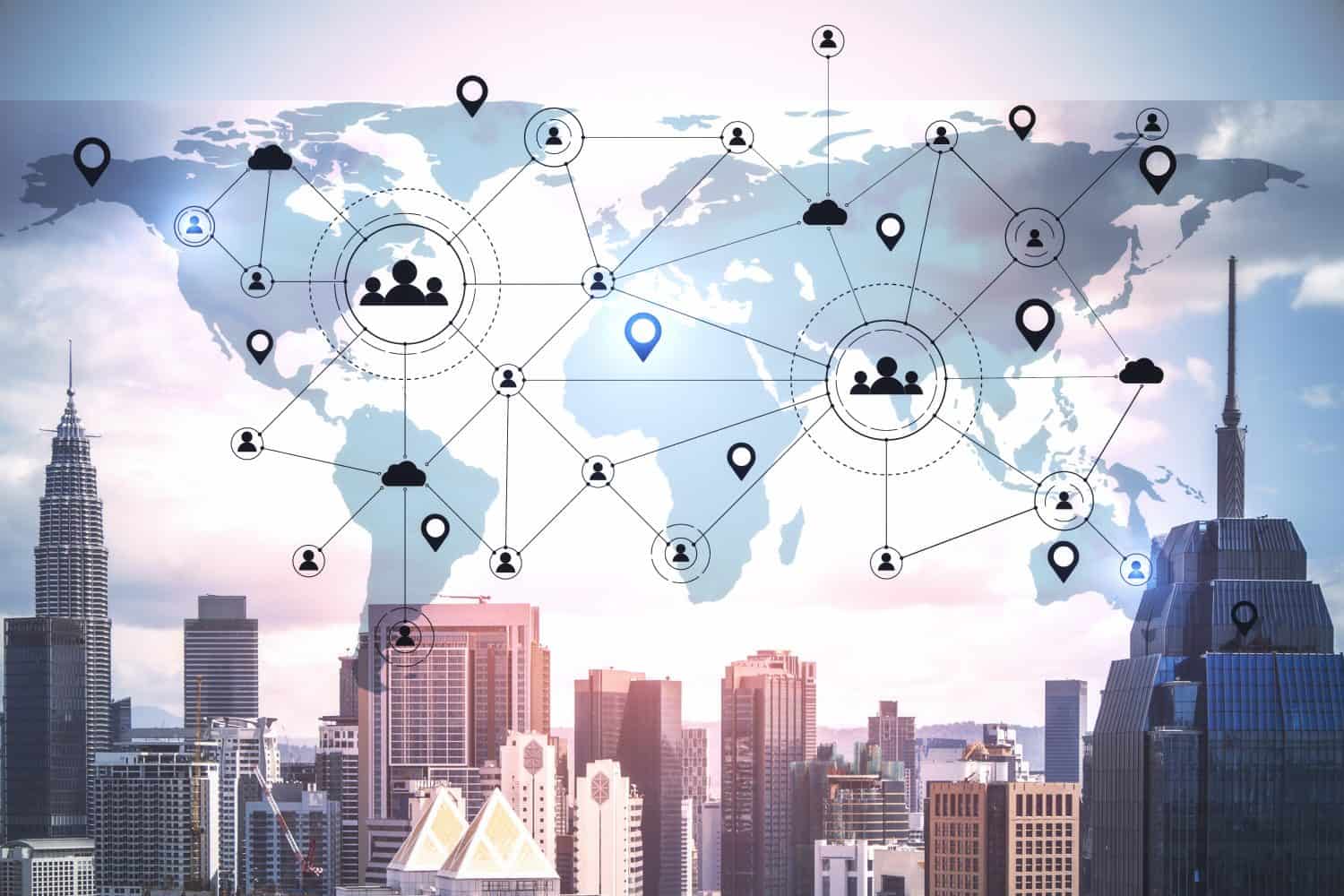
© Desizned/Shutterstock.com
Key Points
- Amazon: Leveraging AI for supply chain optimization and personalized customer experiences, Amazon improves efficiency, reduces waste, and drives customer satisfaction with tailored recommendations and AI-driven logistics.
- Tesla: Pioneering autonomous driving technology, Tesla uses AI in its Autopilot system and manufacturing processes, advancing safety, efficiency, and the capabilities of electric vehicles.
- Netflix: AI powers Netflix’s recommendation engine, content strategy, and streaming optimization, enabling a highly personalized viewing experience that attracts and retains millions of subscribers.
- IBM Watson Health: Revolutionizing healthcare, IBM Watson Health uses AI for accurate medical diagnoses, accelerated drug discovery, and personalized treatment plans, transforming patient care and outcomes.
- Spotify: Enhances music discovery with AI-curated playlists and recommendation engines, improving user engagement and providing artists with valuable listener insights for targeted marketing strategies.
- UPS: Optimizes logistics through AI-driven route planning and predictive analytics, improving delivery efficiency, reducing costs, and enhancing customer satisfaction with real-time tracking.
- Google: Advances AI across industries with tools like Google Search for improved information retrieval, Google Translate for seamless multilingual communication, and healthcare AI for early disease detection.
Artificial Intelligence (AI) has emerged as a transformative force, enabling companies to innovate, streamline operations, and improve customer experiences. Across industries, forward-thinking businesses are leveraging AI to gain competitive advantages, address complex challenges, and create value. This article explores case studies of companies that have successfully integrated AI into their core operations, highlighting the strategies they employed and the benefits they have reaped.

©Golden Dayz/Shutterstock.com
Case Study 1: Amazon – Revolutionizing Supply Chain and Personalization
Amazon is a prime example of a company that has harnessed the power of AI to transform its operations. From logistics and inventory management to personalized customer experiences, AI is deeply embedded in Amazon’s ecosystem.
- AI in Supply Chain Management: Amazon uses AI to predict demand, optimize inventory levels, and manage its vast network of warehouses. Machine learning models analyze data such as seasonal trends, market conditions, and historical sales to forecast inventory needs accurately. This reduces waste, prevents stockouts, and ensures customers receive their orders promptly.
- Personalized Recommendations: Amazon’s recommendation engine, powered by AI, analyzes customer browsing and purchase histories to suggest products tailored to individual preferences. This personalization has significantly boosted conversion rates and customer satisfaction.
- Customer Service: AI-driven chatbots and virtual assistants, like Alexa, enhance customer engagement by answering queries, providing recommendations, and managing tasks seamlessly.
Results: Amazon’s AI-driven innovations have contributed to its position as a global leader in e-commerce, achieving faster delivery times, higher customer retention rates, and increased revenue through personalized shopping experiences.
Case Study 2: Tesla – Redefining Autonomous Driving
Tesla has been at the forefront of integrating AI into the automotive industry, particularly in its development of self-driving technologies.
- Autopilot System: Tesla’s Autopilot system uses AI-powered neural networks to process data from cameras, ultrasonic sensors, and radar to navigate roads, recognize traffic signs, and avoid collisions. The system continuously improves through over-the-air updates, leveraging data from millions of Tesla vehicles on the road.
- Manufacturing Innovations: AI is also utilized in Tesla’s manufacturing processes. Robots equipped with AI perform precise assembly tasks, while predictive maintenance algorithms ensure machinery operates efficiently, reducing downtime.
Results: Tesla’s integration of AI has positioned it as a leader in the electric vehicle market. The company has advanced the capabilities of autonomous driving, set new standards for vehicle safety, and optimized production efficiency.

©Desizned/Shutterstock.com
Case Study 3: Netflix – Enhancing Content Discovery
Netflix has revolutionized the entertainment industry by using AI to provide a personalized viewing experience.
- Recommendation Algorithm: Netflix’s recommendation engine analyzes user behavior, including viewing history, ratings, and search queries, to suggest content that aligns with individual preferences. The algorithm’s ability to predict user tastes has been a key driver of customer retention.
- Content Creation: AI also informs Netflix’s content strategy. By analyzing data on viewer preferences, Netflix identifies trends and produces original content tailored to audience interests, such as “Stranger Things” and “The Crown.”
- Streaming Optimization: Netflix uses AI to enhance streaming quality by optimizing video compression and reducing buffering, even on low-bandwidth networks.
Results: Netflix’s AI-driven personalization and content strategies have enabled the platform to attract and retain millions of subscribers globally, solidifying its dominance in the streaming industry.
Case Study 4: IBM Watson Health – Transforming Healthcare
IBM Watson Health demonstrates how AI can revolutionize the healthcare industry by improving diagnosis, treatment, and patient outcomes.
- Medical Diagnosis: Watson Health’s AI algorithms analyze vast amounts of medical data, including patient records, clinical studies, and genetic information, to assist doctors in diagnosing diseases more accurately and quickly.
- Drug Discovery: AI accelerates drug development by identifying potential drug candidates and predicting their effectiveness. Watson Health’s AI has been instrumental in developing treatments for complex diseases like cancer.
- Personalized Care: Watson Health provides personalized treatment recommendations based on individual patient data, ensuring more effective and targeted care.
Results: IBM Watson Health has improved diagnostic accuracy, reduced research timelines for new drugs, and enabled more personalized healthcare solutions, benefiting patients and healthcare providers alike.
Case Study 5: Spotify – Redefining Music Discovery
Spotify leverages AI to transform how people discover and enjoy music.
- Personalized Playlists: AI algorithms curate personalized playlists such as “Discover Weekly” and “Daily Mix” by analyzing user listening habits, song preferences, and contextual factors like time of day.
- Recommendation System: The platform’s recommendation engine uses collaborative filtering and natural language processing to suggest songs and artists that match user preferences.
- Content Insights: AI provides artists and labels with insights into listener behavior, helping them understand their audiences and tailor marketing strategies accordingly.
Results: Spotify’s AI-driven personalization has increased user engagement, boosted subscription rates, and solidified its position as a leader in the music streaming industry.
Case Study 6: UPS – Optimizing Logistics
UPS uses AI to enhance its logistics operations, ensuring timely and cost-effective deliveries.
- ORION System: UPS’s On-Road Integrated Optimization and Navigation (ORION) system uses AI and advanced algorithms to optimize delivery routes. ORION considers factors such as traffic, weather, and package priorities to create efficient routes for drivers.
- Predictive Analytics: AI-powered predictive analytics help UPS forecast package volumes, allocate resources, and plan operations more effectively.
- Customer Experience: AI enhances UPS’s customer service by providing accurate delivery time estimates and real-time tracking updates.
Results: UPS has achieved significant cost savings, reduced fuel consumption, and improved delivery reliability through its AI-driven logistics solutions.
Case Study 7: Google – Advancing AI Across Industries
Google is a pioneer in AI development, with applications spanning various industries, from search engines to healthcare.
- Google Search: AI enhances search results through natural language processing, understanding user intent, and delivering relevant information efficiently.
- Google Translate: Neural machine translation improves translation accuracy and supports over 100 languages, breaking down communication barriers globally.
- Healthcare: Google’s AI-powered tools assist in detecting diseases like diabetic retinopathy and breast cancer through image analysis, enabling earlier and more accurate diagnoses.
Results: Google’s AI initiatives have revolutionized information accessibility, improved global communication, and contributed to advancements in healthcare diagnostics.
Similar Concepts
AI has had a significant impact on the business environment. Here are a couple of articles about AI and how it is being used today.
- This article describes how AI tools are being used to transform business operations.
- This second article is how AI is changing the nature of work across industries.
Final Thoughts
These case studies illustrate the transformative potential of AI across diverse industries. Companies like Amazon, Tesla, Netflix, and others have demonstrated that integrating AI into core operations can drive innovation, improve efficiency, and deliver exceptional value to customers. By embracing AI strategically, businesses can unlock new opportunities, stay ahead of competitors, and shape the future of their industries. As AI technology continues to evolve, its role in driving business success will only become more significant.
The image featured at the top of this post is ©Desizned/Shutterstock.com.